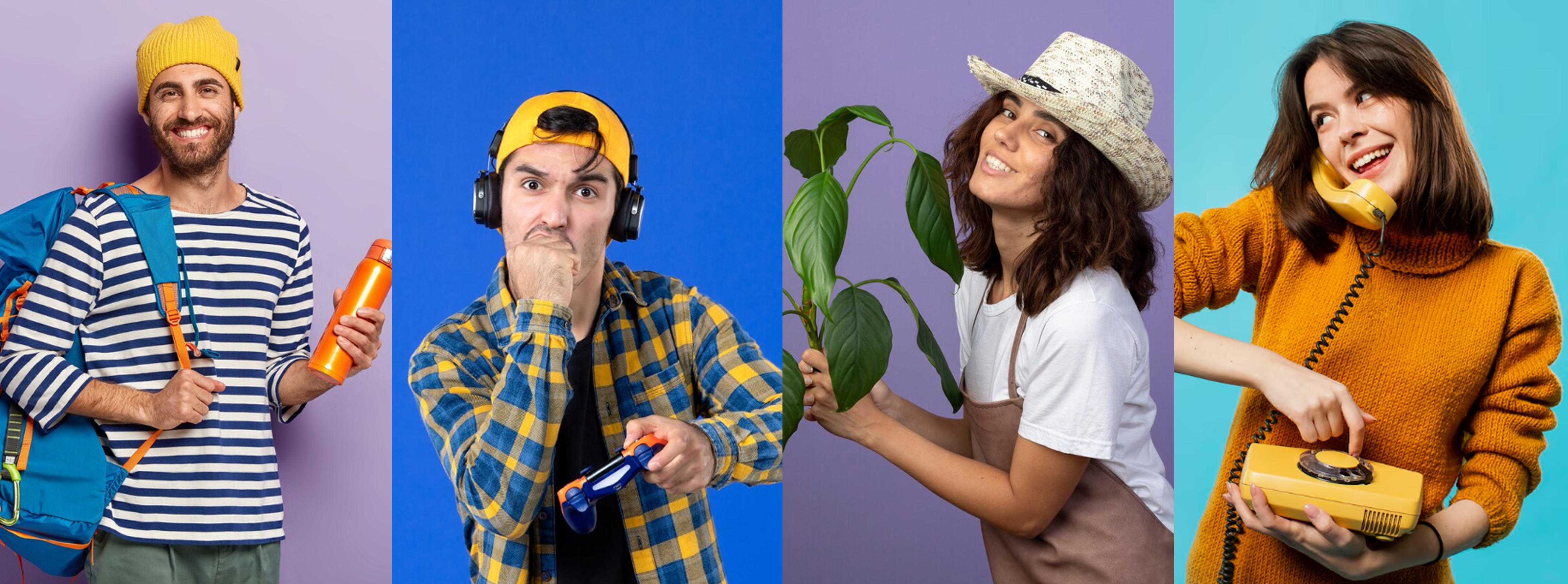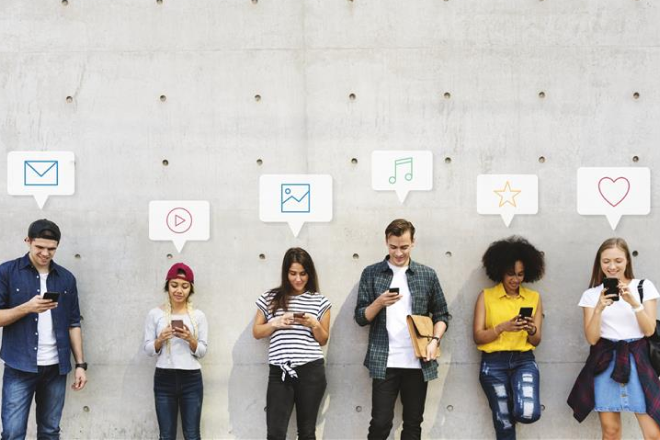
The role of Mobile Wallet Cards in the...
Mobile wallet cards have become a key tool to improve the quality of life of the customers....

The world is changing fast, and with it, consumers are evolving. Looking ahead to 2027, brands must be prepared to meet the new expectations and behaviors of consumers, who are moving away from current trends to adopt lifestyles and values that are more aligned with their emotional, social and technological needs. To achieve this, counting on a marketing agency that will help to design effective marketing strategies and knowing the market trends is key.
At NATEEVO we tell you everything you need to know about the consumer of the future based on trends and reports from WGSN and GWI, two of the most important trend forecasting and audience research companies, respectively.
The collective exhaustion of 2026 will give way to a 2027 marked by a sense of widespread apathy and disinterest. In the face of this, conventionalists will reject the culture of extreme productivity and embrace a philosophy of life based on rest, creativity and personal comfort.
These consumers will not measure success in terms of return on investment (ROI), but in terms of return on energy (ROE), prioritizing experiences that bring them emotional well-being over those that simply generate economic value. The trend of "slow punk" will gain momentum, promoting a more leisurely and conscious approach to life, which will be reflected in a return to analog and authentic lifestyles. Digital marketers will have to adjust their messaging and adapt their content marketing to this audience that values authenticity and emotional connection.
A clear example of this phenomenon can be found in IKEAwhich has relaunched a collection with updated versions of its original designs from the 1950s, '70s and '80s, including a metal-framed bookcase that has become highly sought after on the second-hand market. This revival of classics demonstrates the growing interest in the retro and authentic, a key value for conventioneers. Another example is provided by Nokiawhich has partnered with Aalto University in Finland to create the Nokia Design Archive, a digital portal showcasing the brand's iconic technology from the mid-1990s to 2017, including unreleased prototypes.
In a world perceived as too serious and hostile, energetic people will opt for humor, surrealism and creativity as escape mechanisms. For them, "fun" will not just be an option, but a fundamental right.
This generation will avoid relying on artificial intelligence to generate experiences and, instead, will draw on their own imagination to create "funtility," a combination of functionality and entertainment. Products and services that integrate playful elements into their design and communication will have a competitive advantage. Brands will need to gamify their propositions and offer more interactive experiences to connect with this consumer.
Nintendofor example, has launched an alarm clock designed to turn the act of waking up into a game. When you physically get up, the alarm stops, displaying a celebratory scene on the clock's screen, turning the morning routine into a fun experience. In addition, Culture Hero creates unconventional workshops that integrate play into corporate environments to attract and retain talent. This approach of integrating fun into work environments is an effective way to connect with energetic people, who are constantly looking for dynamic and surprising experiences.
Brands should gamify their proposals and offer more interactive experiences to connect with this consumer. A digital marketing agency like NATEEVO helps design innovative and dynamic campaigns that capture their attention through interactive content, social networks and immersive experiences.
With growing skepticism toward institutions and brands, the new independents will adopt a vigilant role in the search for truth. Authenticity will be their priority, and they will demand greater transparency and accountability from brands and governments.
This group will combat misinformation and denounce practices such as greenwashing (misleading sustainability advertising). As a result, consumers will become more critical and less loyal to brands, favoring those that offer clear and reliable verification of their products and services. Companies that manage to building trust through verifiable data and honest narratives will earn your loyalty.
Samsung has already funded a research project to explore how the video game industry could do more for people with disabilities. As a result, it launched the Embrace Your Game portal, showing a commitment to inclusion and fact-checking to deliver authentic experiences. In addition, the owner of the Los Angeles Times, Patrick Soon-Shiongannounced that it will add an AI-powered "bias meter" to the newspaper's news articles, reflecting a clear intention to combat misinformation and provide more transparent and accountable reporting.
To attract this profile, digital marketing agencies should focus on transparency and data verification in their campaigns. A good digital marketing service must guarantee clear, honest messages based on verifiable facts to generate trust and loyalty.
In response to digital saturation and the deterioration of mental health caused by hyperconnectivity, privacy guardians will be looking for ways to protect their personal information and reduce their dependence on technology.
This group will embrace "ping minimalism," eliminating notifications and simplifying their interaction with technology to live more mindfully. Digital fatigue will drive the creation of technological solutions designed to promote wellness, such as the "technology for non-technological timesThe "new" technology will allow for a more balanced and healthy use of the devices.
The Guardian has already launched a newsletter called Reclaim Your Brain, with the aim of helping readers spend less time online, promoting a more conscious and balanced way of interacting with digital content. In addition, Indian airline IndiGo has tested a new feature that allows female passengers to choose whether or not they want to sit next to men during flights, showing how brands are starting to offer options that respect users' privacy.
Brands should rethink their way of communicating with this segment, reducing the invasiveness of their strategies and betting on content marketing that educates and informs without saturating. Digital marketing companies are key to carry all this out, in fact in NATEEVO we are already doing campaigns focused on this audience, using non-intrusive formats and more aligned with their desire for privacy.
The consumer of 2027 will not be homogeneous or predictable. Brands will have to be attentive to these new trends and adapt their strategies to connect with each of these profiles. The key to success will lie in offering authentic, interactive experiences aligned with the values of each group.
Having a specialized marketing agency will allow companies to develop personalized and effective marketing strategies for each consumer profile. Contact us at and make your company ready for the future with a marketing service adapted to new trends.

The role of Mobile Wallet Cards in the...
Mobile wallet cards have become a key tool to improve the quality of life of the customers....

The art of listening in the digital era
Digital Listening: the analysis strategy that allows us to understand the conversations that revolve around a specific...

AI Generative: The fascinating world of...
In this article, we will explore the main aspects of Generative AI and discover how this technology...